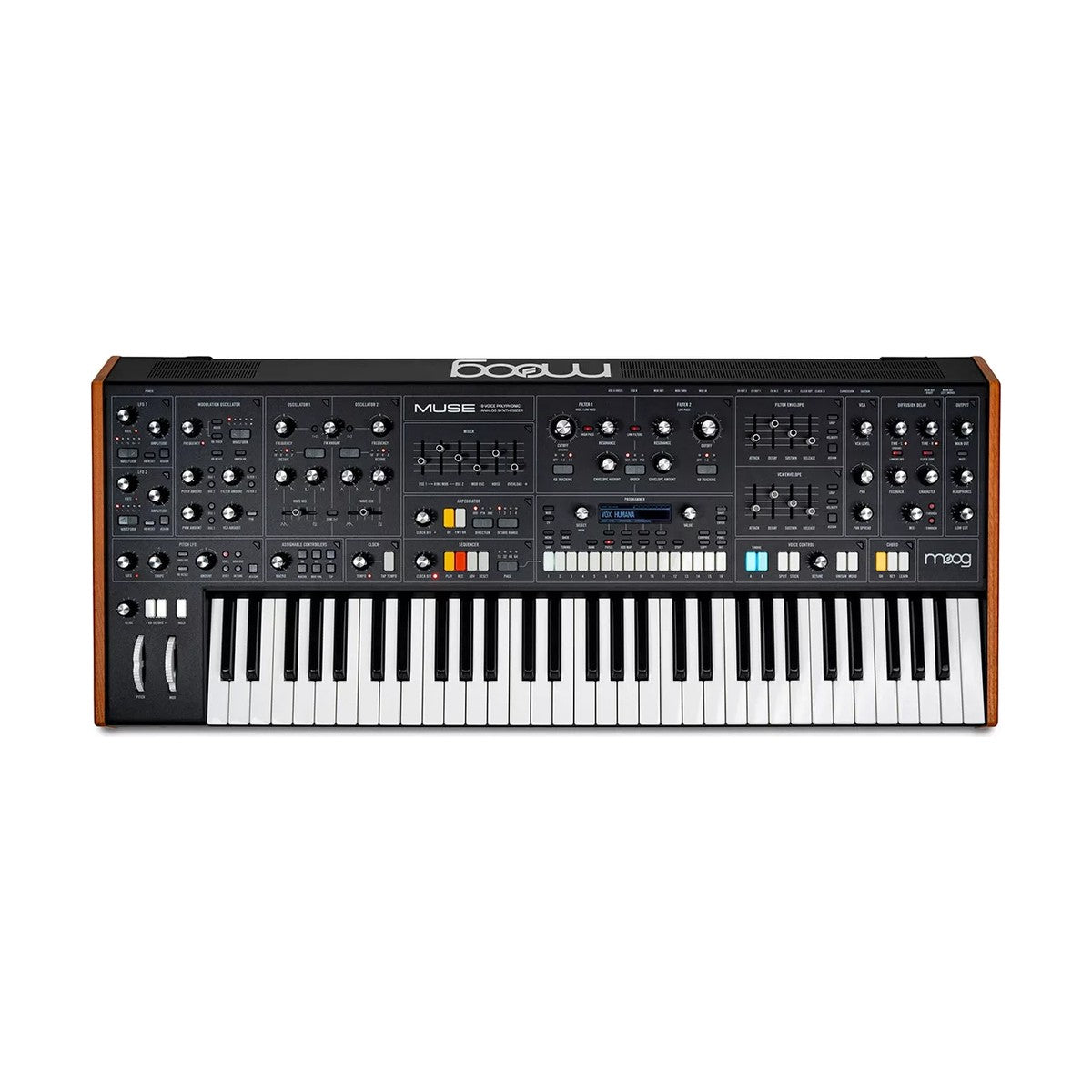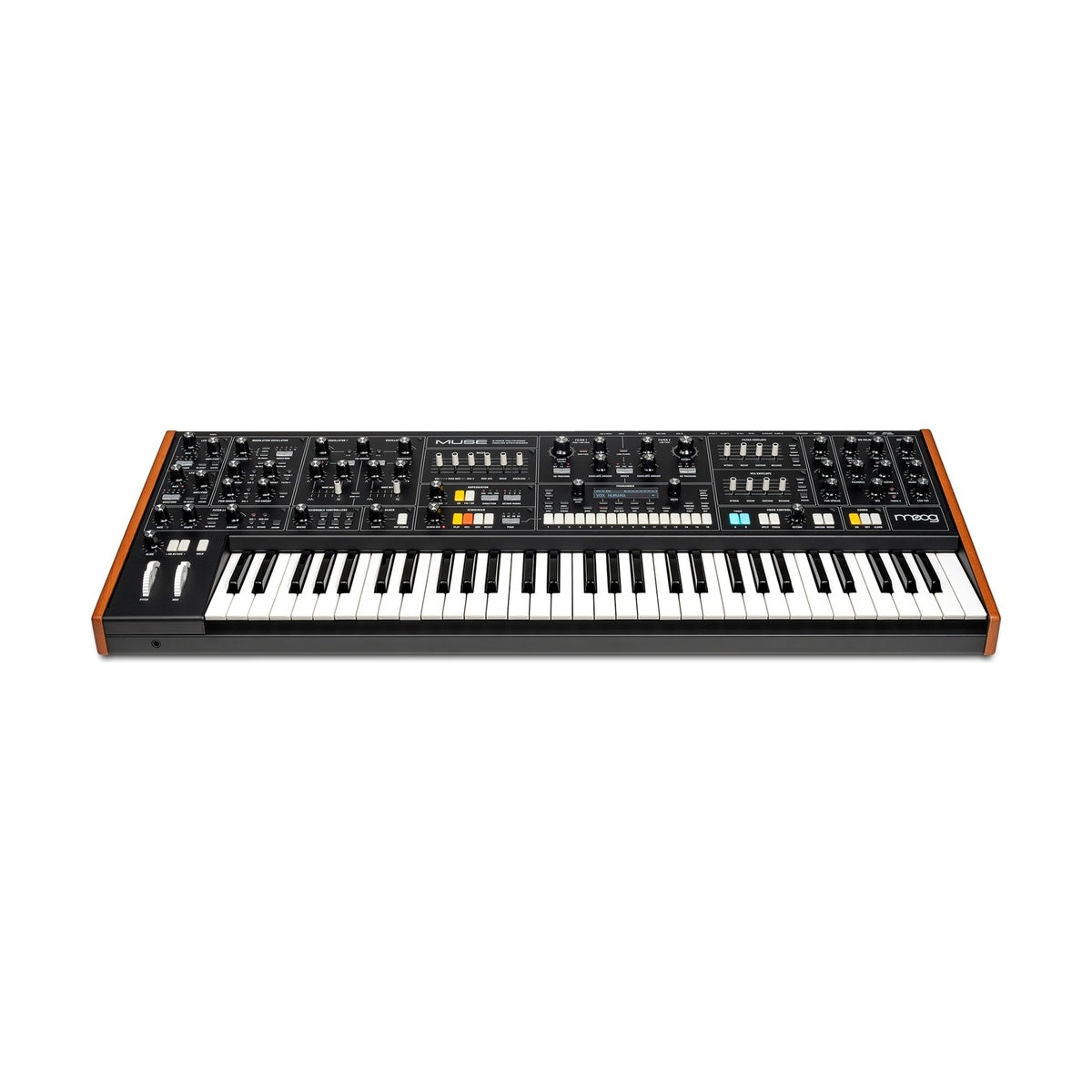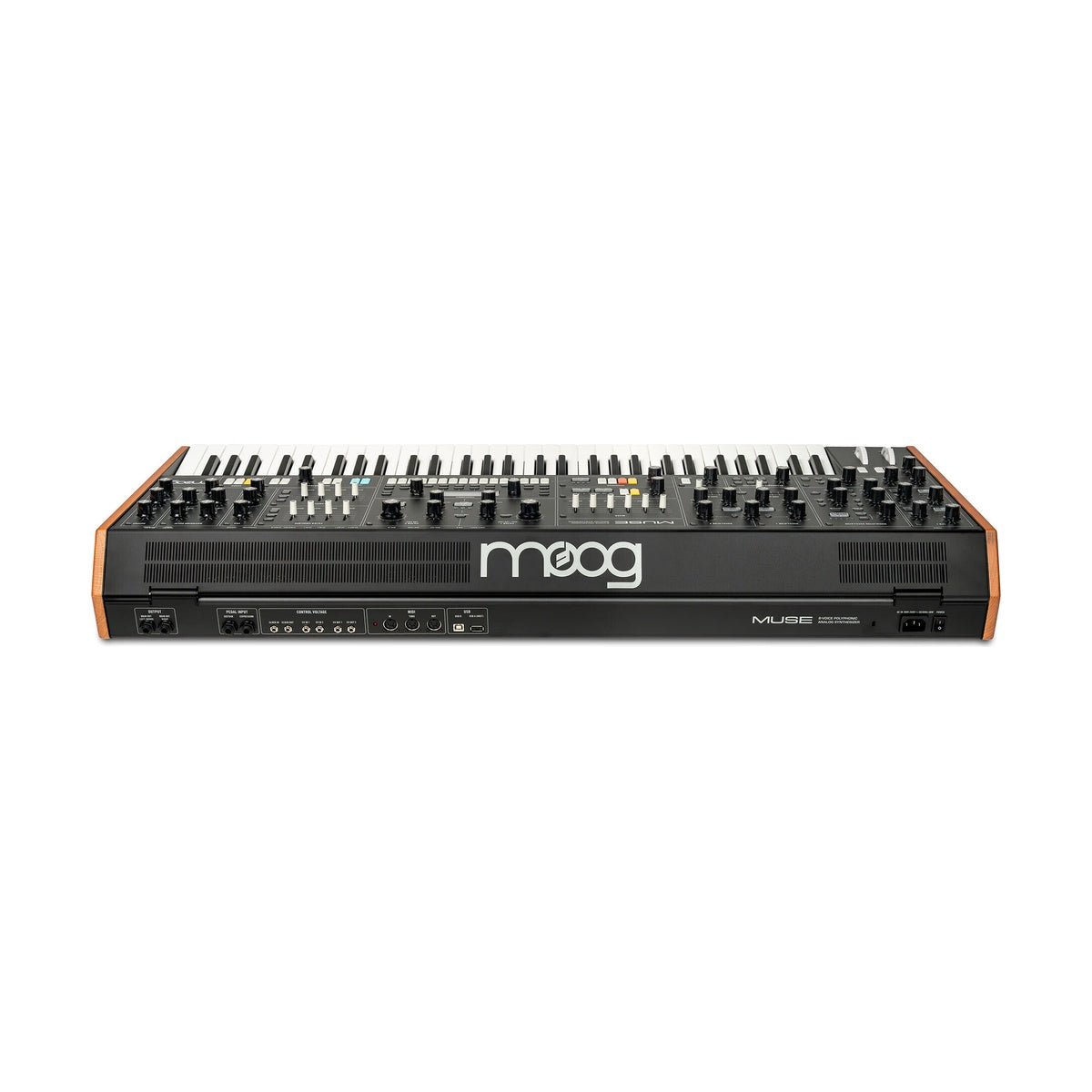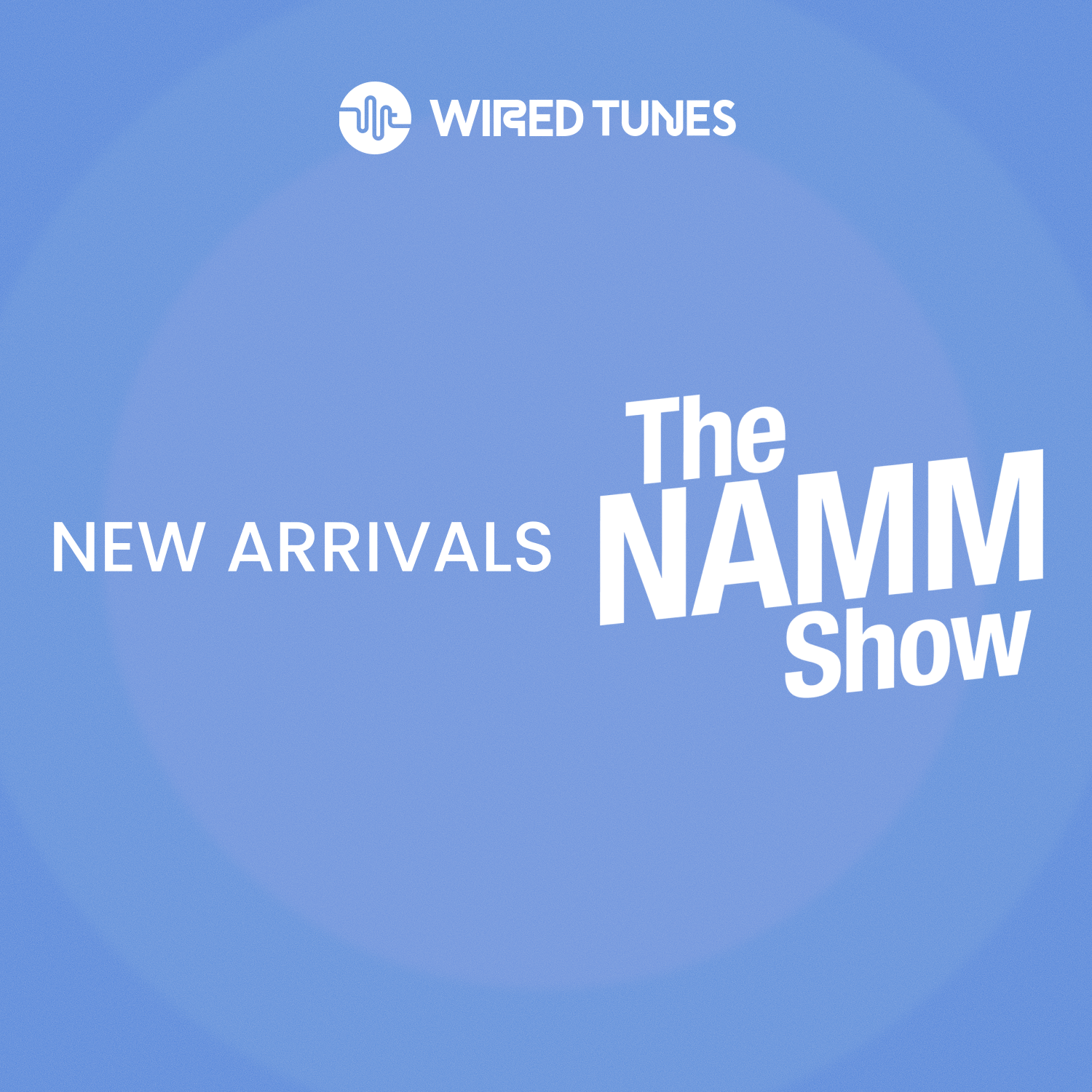


Moog
Moog Muse
Moog Muse
Warsaw Showroom
Nowogrodzka 6
102
00-513 Warszawa
Polen
Optionen wählen
Moog Muse – an 8-voice bitimbral polyphonic analog synthesizer featuring a 61-key semi-weighted Fatar keyboard with velocity and aftertouch, dual VCOs, a modulation oscillator, dual analog filters, stereo architecture, 16 banks of 16 patches, two LFOs, pitch LFO, built-in 64-step sequencer, 16 sliders, 44 knobs, 129 buttons, pitch/mod wheels, USB and MIDI connectivity.
This refreshed design combines digital control with a robust analog foundation based on the circuitry of the Moog Voyager oscillators, MF-102 Ring Modulator, CP3 Mixer, 902 VCA, and 904a filter. It offers rich sound design options with a vast palette of presets including pads, FM textures, leads, and deep basses—alongside two user banks for saving custom patches. A powerful arpeggiator and flexible modulation matrix enable intricate sonic manipulation, while its intuitive interface is perfect for both live performance and studio creativity.
KEY FEATURES
- 8-voice bitimbral polyphonic analog synthesizer
- Dual voltage-controlled analog oscillators with wide waveform selection
- Modulation oscillator with extensive routing options
- 44 knobs, 16 sliders, 129 buttons and OLED display
- Stereo filter paths with serial/parallel/stereo routing
- Two Moog-style analog filters with variable tracking and resonance
- Two LFOs and pitch LFO with user waveform support
- Ring modulation, glide, chord memory, unison/detune control
- 64-step sequencer and advanced arpeggiator per timbre
- Diffusion stereo delay effect with analog bypass
- 16 banks of 16 patches, with 16 modulation slots per patch
- Comprehensive modulation map with mathematical transforms
- USB-B and USB-A ports, CV I/O, pedal inputs, MIDI DIN I/O/Thru
- Dedicated stereo audio outs and headphone out
TECHNICAL SPECIFICATIONS
- Keyboard: 61 semi-weighted keys with velocity and channel aftertouch
- Polyphony: 8 voices
- Oscillators: 2 analog VCOs with hard sync and FM
- Filters: 2 Moog transistor ladder filters with HP/LP options
- Modulation: 2 LFOs, pitch LFO, noise generator, modulation oscillator
- Envelope generators: 2 with variable curves, looping, and multitrig
- Sequencer: 64-step per voice with modulation recording
- Arpeggiator: Pattern, direction, octave range, rhythmic programming
- Display: OLED
- Audio outputs: L/R TRS 1/4” main, 1/4” stereo headphones
- Pedal inputs: Sustain, Expression (TRS, assignable)
- CV inputs: 2x 1/8" TS CV IN
- CV outputs: 2x 1/8" TS CV OUT
- Clock: Analog 1/8” TS clock IN and OUT
- MIDI: DIN In/Out/Thru, USB-MIDI
- USB-A Host and USB-B Device ports





